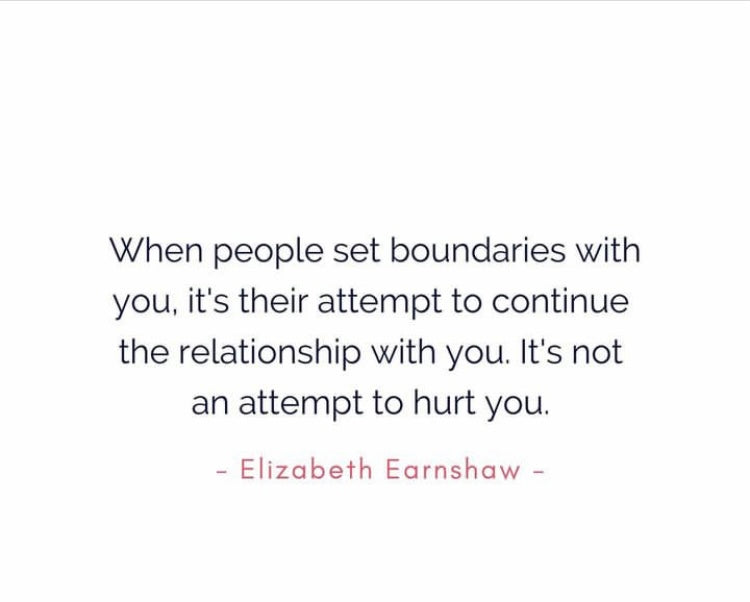Today we talk people pleasing and how to say NO, why we don't say it, how it makes us and others uncomfortable and how we can try to use it a bit more in the future.
The Power of Saying NO
I've been having a few conversations around saying no recently and so I thought I would share.
Many of us struggle to say No. Whilst historically considered more of a feminine trait (although I can definitely see more men struggling with this too) many of us have been trained to put others before us, make others feel comfortable and we don't want to be seen as doing the 'wrong' thing.
Not saying NO and people pleasing can bleed into each other. Putting other peoples needs and desires before our own can feel like the right/nice thing to do. It's nice to help others. It feels good to help others but there is a fine line between helping others and ignoring your own needs and desires.
Why we don't say NO
- To avoid conflict or confrontation
- Not wanting to disappoint others
- Not wanting to hurt feelings
- Fear of judgement
- Fear of losing people and connection
- Fear of being misinterpreted
- People pleasing
Often when people give a no, they don't give context for the reason they've said no. It's easier to say yes than to give the necessary context for the no and the reasons behind it.
When workshopping this topic with my mate Korey, he came up with the example of me asking him to buy me a chocolate bar (that DOES sound like something I would do!). He said that whilst I think it's only a couple of dollars for a chocolate bar and it's not a big deal, Korey is saving to go to Japan and whilst it's only a couple of dollars, those couple of dollars ARE his trip to Japan. He says yes because it's easier than to say no and give that context BUT also he doesn't want me to think of him as less than generous or a cheap skate.
Communication - so complicated!
But this can work against us.
We will often say yes, without actually wanting to.
Recently I had to give a huge no.
It felt massive.
I knew that I would disappoint some people.
I also knew that it was the right decision, for me.
And that if I had of said yes, I would have disappointed myself.
Glennon Doyle has this to say;
"Every time you are given a choice between disappointing someone else and disappointing yourself, your duty is to disappoint that someone else. Your job throughout your entire life, is to disappoint as many people as it takes to avoid disappointing yourself."
I think we are all at different points on our NO journey.
Some people feel really ok saying no
Some people can't say NO (yet)
Some people are tentatively practising how to say no (which feels huge for them)
Some people are just realising that they CAN say no
Some people continue to say yes, despite wanting and KNOWING they should say no
One of my life theories is that we are presented with the same lessons or situations over and over again and you will continue to get the same lessons or situations until you learn the lessons. (I feel like there might be a newsletter topic in this)
Whether you are quite comfy saying no or struggle to say no, we will constantly receive opportunities to practise.
Not being able to say No can become People Pleasing...
People-pleasing prioritizes the needs of others at the expense of your own
If you find it difficult to tell others no when they ask you for something, you may be a people pleaser.
In the chocolate bar example - people pleasing is buying me all the chocolate bars (cherry ripe or peppermint please) because my needs are more important than Korey's trip to Japan.
People pleasing and being kind are not the same thing.
People Pleasing can look like;
- You cannot say no
- You feel anxious about others' opinions of you
- You never have 'you' time
- You feel guilty about setting boundaries (that's a whole other newsletter!)
- You apologise for things you don't need to
- You need constant approval
- You struggle with self esteem and feeling worthy
- You agree to keep the peace
Many people pleasers prefer making up excuses later to get out of a commitment instead of saying no from the start.
This is an interesting and more in depth article regarding people pleasing
If you can't say no or are people pleasing
This can lead to feelings of;
- Resentment
- Depletion
- Guilt
- Overwhelm
- Anger
- Anxiety
- Stress
- Burn out
Parts of not saying no and people pleasing come from the feeling that you aren't living YOUR life and your time is not your own. If you are overwhelmed by commitments but aren't able to make time for the things that you love and spend time the way that you enjoy, these above feelings can build up.
How to say NO
Practise - It takes practise. Practise your no with small things. These small things might feel huge the first times you say no. Choose some easy, low-risk situations in which to practice saying no. Say no when you are offered some food (no, really). Say no when someone tries to sell you something in the street. Go into a room by yourself, shut the door, and say no out loud ten times. It sounds crazy, but building your no muscle helps. Start to create the identity for yourself that you are a person who says no.
KNOW your No - Identify what's important to you and what's not. What do you value and how do you want to spend your time. Before you can say no with confidence, you have to be clear on why you are saying no.
Ask for some time - Sometimes you say yes automatically and then when you think about it, you don't want to do it. If you know you don't respond well under pressure, ask for some time to think about it.
"I need to check my diary"
"I'm not sure what's coming up but let me check and get back to you"
I would say don't use this as a delay tactic but if it helps in building your no muscle or actually saying no then do what you need to do.
Clear is kind. Brene Brown talks about this. Say what you mean. Mean what you say. Don't use maybes or mights. Be clear. Be kind. Be definite. Brene Brown and how unclear is unkind here.
Have some go-to responses in declining requests.
I saw a beautiful response on instagram recently. It was;
"Thanks for thinking of me, but right now, I'm going to decline. My plate is as full as I like"
No apologies, no long explanations, no guilt, instead the response normalised caring for herself, her time and energy and not exhausting herself.
There's a great podcast by Tim Ferriss on how to say no that I highly recommend that you can listen here
What happens when you say NO
What happened the last time someone said no to you?
Did you think badly of them?
Did you change your opinion about them?
Did you feel let down?
Probably not - I can't speak to your experiences but I think about the times I've asked something of someone and they said no and I moved on. I didn't think badly of them, I assumed that their plate was really full and that they would have done it if they could.
And so then we turn that around and be gentle on ourselves so that when we say no, hopefully people are responding with compassion, the same way that you do when someone says no to you.
When I said my big No, I made sure that I gave them notice.
I was clear, I was kind.
But I was definite
And you know what happened.
Nothing.
It was accepted that I said no.
I'm sure they were disappointed.
But as with the Glennon Doyle quote about, I know I would have been way more disappointed in myself if I had of said yes, when I meant no.
No is a full and complete sentence. It doesn't need reasons or justifications. It can just be no and that's ok.
People pleasing and being kind are not the same thing.
You can be kind and still have boundaries so that you do not deplete yourself simply because you fear disappointing people. It's a beautiful thing to help others where we can and when we have capacity.
A couple of quotes that I was taught are;
"You can't give from an empty cup"
"Sometimes you need to be selfish to be selfless"
If you aren't looking after yourself, it's even harder to give to others.
You need to make sure that your energy is going to your highest goals and to maintaining your well-being.
If you want to serve others well, you need to make it your top priority to serve yourself well first.
The ability to communicate ‘no’ really reflects that you are in the driver’s seat of your own life. It gives you a sense of empowerment.
Ultimately we want to live a life where we can look after ourselves and others, where we can say no so that we can say yes to the things we really want to.
Your No has Power. Use it.
** In the course of writing this, I ended up buying Korey (and myself) a chocolate bar. We had so many discussions about buying chocolate bars, we needed Chocolate bars!

